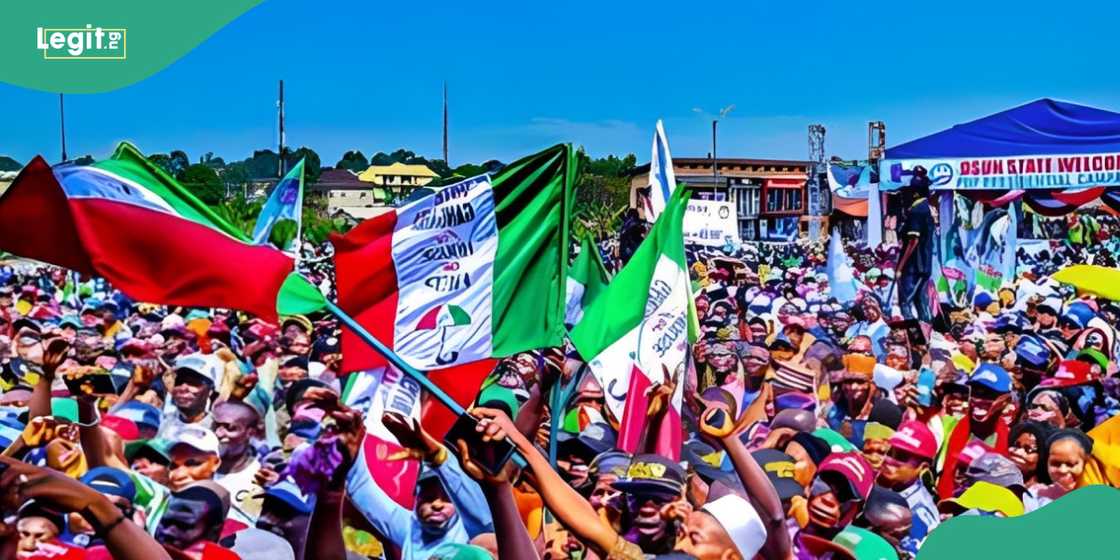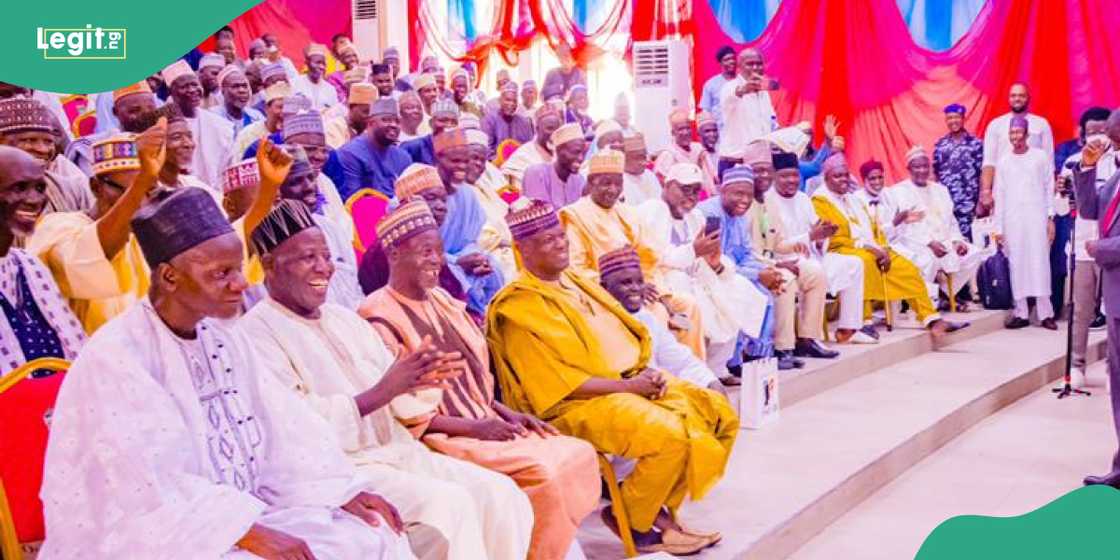In Nigeria and many democratic societies, political parties don’t just exist as loose groups. Like other structured organizations, they are governed by a defined set of rules and procedures to maintain order and transparency within their ranks. This structured approach becomes especially significant during election cycles, shaping not only internal party affairs but also the quality of national leadership that emerges from these processes.
One of the most crucial steps in a party’s journey to the general elections is the conduct of primaries. These primaries are pivotal moments, where political parties organize internal elections—typically referred to as primary elections—to choose candidates who will represent the party at local, state, and national levels. During this period, only specially selected members, known as delegates, are empowered to vote and decide which aspirants get the party’s ticket.
The delegate system is a distinctive feature of party politics, not just in Nigeria but across West Africa and many parts of the world. It serves as a bridge between party members at the grassroots and the leadership, ensuring organized and sometimes fiercely contested selections. But who exactly are these delegates, and how do they shape the country’s political landscape?
Who Are Delegates?
Delegates are the backbone of political parties during the all-important primaries. According to Stears, delegates are chosen members of political parties granted the exclusive authority to elect candidates for major offices such as president, governor, senator, and member of the House of Representatives.
While the overall responsibility of delegates centers on voting for party flagbearers, their significance goes deeper. Delegates often act as the voice of their wards or constituencies, representing the interest of ordinary party members in party congresses and conventions. Whether at the ward, state, or national level, their votes can influence not just party outcomes but, given the dominance of some parties, national destinies.
Different party elections—from local government to the presidential primaries—require different kinds of delegates. For instance, some delegates may vote at ward congresses, while others participate in national conventions. This layered system allows for broad representation, though it’s sometimes criticized for lack of inclusivity or transparency, especially when allegations of bribery or manipulation surface.
Types of Delegates in the Nigerian Political System
Delegates in Nigeria’s party politics are not a one-size-fits-all group. They can be classified based on how they are selected and what offices they help to fill. The two most prominent categories are:
- Ad-hoc delegates
- Statutory delegates
Exploring the Two Types of Ad-hoc Delegates
Ad-hoc delegates are mainly chosen for a particular event or primary. Their power is temporary, tied specifically to the electoral process underway.
- Ward delegates: These delegates play a key role in selecting party candidates for the House of Representatives, Senate, and gubernatorial elections. They are usually selected at the grassroots level, providing a direct link between local party members and the central party machinery.
- National delegates: National delegates are charged with electing the party’s presidential candidate. According to election experts, they are chosen from each local government area across the country through processes such as congresses or internal selection by the party’s leadership bodies.
How Are Ad-hoc Delegates Chosen?
The process of choosing ad-hoc delegates varies by party, but the most common approach is the ward-based system. Each Nigerian local government is subdivided into wards—political units that serve as the foundation for grassroots mobilization. Presently, Nigeria has 8,821 official wards, sometimes described as “district headquarters.” Parties allocate a set number of delegates per ward, taking into account population, party strength, or other internal criteria.
Selection is often conducted via mini-congresses or caucus meetings where party members at the ward level vote for their preferred delegate candidates. In practice, the outcome may depend on local alliances, internal negotiations, and sometimes the influence of powerful party chieftains or financiers. Critics point out that while the process is intended to be democratic, grassroots voices may be sidelined if the party hierarchy has undue influence.
Understanding Statutory Delegates
Statutory delegates, sometimes called “automatic delegates,” derive their authority from positions they currently hold or have previously held within the party or in public office. These delegates do not have to undergo fresh electoral process to be eligible; their right comes by virtue of their office or party status.
This category includes sitting and former presidents, vice presidents, governors, deputy governors, senators, house of representatives members, and members of state assemblies. Senior party officials—such as state chairpersons, local government chairpersons, and their deputies, alongside ward councilors—also qualify as statutory delegates. The rationale is that their experience and continued service within the party merit them a say in crucial decision-making moments like primaries.
However, the inclusion of statutory delegates has sparked debate. Some argue that it ensures continuity and leverages experience, while critics allege it entrenches the power of political “elites” at the expense of party grassroots. The legal status and specific entitlements of statutory delegates in Nigerian law have also been subject to debates, especially around reform efforts.
How to Become a Political Party Delegate: The Nigerian Process
Becoming a delegate in Nigeria is an aspiration for many politically active citizens, offering an opportunity to directly affect party and, potentially, national outcomes. The process involves several key steps, which, according to various political analysts and observers, include:
- Joining a political party as a registered member with dues up to date.
- Actively participating in party meetings and contributing positively to party activities at the ward and local government levels.
- Expressing your intention to serve as a delegate when the opportunity arises.
- Securing endorsement or nomination from key party stakeholders or leaders within your ward or local government.
- Enlisting support from fellow party members, as selection often involves internal voting.
- Navigating any screening processes to verify eligibility and loyalty to the party’s ideals.
- Winning the vote during the ward or local government congress (for ad-hoc delegates).
- For statutory delegates, serving (or having served) in qualifying public or party offices.
- Abiding by party rules, codes of conduct, and national electoral guidelines.

Photo credit: @OfficialPDPNig
Source: Twitter
While this process may look straightforward, it can be influenced by internal party politics, regional and ethnic negotiations, and sometimes allegations of vote-buying or undue favoritism. Successful delegates often possess deep connections with their communities and a proven record of party loyalty.
State-by-State Breakdown of APC Delegates in Nigeria
Ahead of major party conventions, attention often turns to the number and distribution of delegates across the country’s 36 states and the Federal Capital Territory (FCT). For the All Progressives Congress (APC), a leading party in Nigeria, these numbers are especially closely watched, as they can tip the balance during high-stakes presidential primaries.
According to official party data reportedly released by Joe Igbokwe, a senior APC member, in May 2022, the total count of APC delegates nationwide stood at 7,810. The states boasting the highest numbers—Kano, Katsina, Borno, Osun, and Lagos—are influential not just in the APC but also in the national political calculus. Their large delegate contingents give state actors considerable leverage, fueling political calculations and alliances.
Conversely, the FCT has the smallest delegation, with only 53 delegates—a fact reflecting its smaller electorate and administrative structure. Political analysts argue that while quantity is vital, the strategic importance of some states and the loyalty of their delegates can sometimes outweigh raw numbers.
Controversies Around Delegate Lists: The Cross River Example
Delegate selection is not immune to controversy. In May 2022, concerns arose regarding the validity of the delegate list sent by the Cross River State Working Committee of the APC. Party stakeholders in Cross River publicly urged the National Working Committee (NWC), led by Senator Abdullahi Adamu, to disregard what they described as a fraudulent list.
These stakeholders insisted that the only legitimate delegate lists are those that comply strictly with the APC’s constitution and official guidelines. Party insiders allege that irregularities in delegate selection have, in the past, led to internal disputes, protracted litigation, and even parallel conventions. This episode underscores the importance of transparency, adherence to laid-down procedures, and ongoing reforms to instill greater confidence in the delegate system.
“We need to ensure that our party’s constitution is followed to the letter. Any manipulation or fraudulent behavior destroys faith in the democratic process,” noted a concerned party member in Abuja, speaking on condition of anonymity. Political observers warn that lapses in delegate selection not only affect primary outcomes but can cast a shadow over subsequent elections—both within the party and in the national contest.
Comparative Perspective: The Delegate System Beyond Nigeria
The delegate model is not exclusive to Nigeria. Several West African countries, including Ghana, utilize a mix of ad-hoc and permanent delegates in party primaries. Although procedures differ, the core idea remains—a group chosen from among the party faithful makes crucial leadership decisions. International observers note that while the system is designed to promote structured representation, it can fall prey to similar issues: factionalism, elite capture, and questions about internal democracy.
Analysts argue that ongoing reforms and greater civil society scrutiny are vital to strengthening the delegate system, making it more transparent and accountable—not just in Nigeria but across Africa. These measures will help safeguard the integrity of primaries, ensure fairer outcomes, and bolster public faith in democratic institutions.
The Path Forward and Local Reflections
Nigeria’s approach to political party primaries and delegate selection continues to evolve. While there is progress, especially with increased awareness and media scrutiny, significant obstacles remain: lack of transparency, alleged inducement of delegates, and imbalances in representation. As Nigeria prepares for future elections, strengthening party institutions and empowering honest delegates must remain key priorities.
Ghanaians, West Africans, and broader African audiences watching Nigeria can draw valuable lessons: internal party democracy is foundational to effective national governance. Ensuring fairness and transparency in delegate selection is critical—whether for ruling parties or the opposition. As reforms unfold, citizens across the continent have a vested interest in holding political actors accountable at all levels.
What are your thoughts on Nigeria’s delegate system? Do you think it’s democratic enough, or are stronger reforms needed to make party primaries more transparent? Share your views below and stay tuned for more updates on politics and governance across Nigeria, West Africa, and beyond.










